
Zadie Smith’s The Fraud, Lauren Groff’s The Vaster Wilds, Jonathan Raban’s Father and Son, and Naomi Klein’s Doppelganger all feature among September’s best reviewed books.
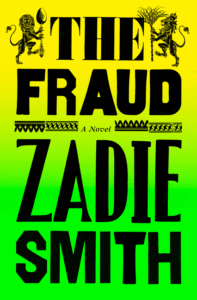
1. The Fraud by Zadie Smith
(Penguin Press)
17 Rave • 7 Positive • 8 Mixed • 1 Pan
“It offers a vast, acute panoply of London and the English countryside, and successfully locates the social controversies of an era in a handful of characters … Touchet is the most morally intelligent character Smith has written … The book’s structure is uneven. One wishes, for instance, that the chapters would signal their time jumps more consistently … But these infelicities stop mattering when we are deep into the trial and the book turns into a portrait of people with thwarted ambitions, of people who, like Ainsworth, become frauds without knowing … As always, it is a pleasure to be in Zadie Smith’s mind, which, as time goes on, is becoming contiguous with London itself. Dickens may be dead, but Smith, thankfully, is alive.”
–Karan Mahajan (The New York Times Book Review)
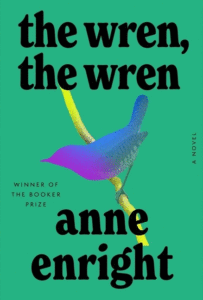
2. The Wren, the Wren by Anne Enright
(W. W. Norton & Company)
17 Rave • 2 Positive
Read an interview with Anne Enright here
“So convincingly has Ms. Enright conjured the archetype of the wandering Irish bard who leaves behind him a legacy of abandoned women and melodious, honey-tongued verse … Is it possible for poems to be fictitious? In fact, these nostalgic odes to love and Ireland are limpid, lilting, wholly credible stand-alone works … One of Ms. Enright’s remarkable feats is to write believably across three generations, capturing epochal differences but also a buried, or even repressed, continuity. The fullness of Ms. Enright’s talent is reflected as well in her treatment of what has come to be known, a bit glibly, as the ‘art monster.’”
–Sam Sacks (The Wall Street Journal)
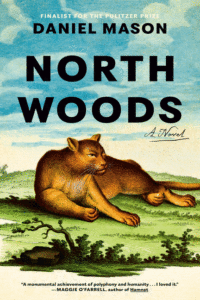
3. North Woods by Daniel Mason
(Random House)
15 Rave • 2 Mixed
“Haunting, haunted … The literary gods are inscrutable—the book club overlords even more so—but I’m praying you’ll consider getting lost in North Woods this fall. Elegantly designed with photos and illustrations, this is a time-spanning, genre-blurring work of storytelling magic … Mason isn’t just passively watching the evolution of this site in the forest. Each chapter germinates its own form while sending out tendrils that entwine beneath the surface of the novel … Revelatory.”
–Ron Charles (The Washington Post)
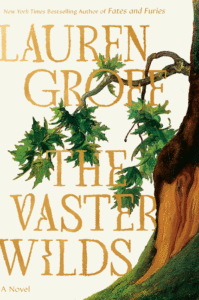
4. The Vaster Wilds by Lauren Groff
(Riverhead)
9 Rave • 5 Positive • 4 Mixed • 2 Pan
Read an excerpt from The Vaster Wilds here
“Lauren Groff’s The Vaster Wilds is a radical disruption to the male-dominated cliche. In her wilderness tale, survival involves learning to become part of the vast networks of community that nurture entire ecosystems … A fully-realized historical milieu … Groff acknowledges her character’s troubled past without turning pain into spectacle … Her surroundings come alive in prose that lives and breathes upon the page … A terrific addition to a developing canon of our continued existence.”
–Lorraine Berry (The Boston Globe)
5. Loved and Missed by Susie Boyt
(New York Review of Books)
8 Rave • 3 Positive
“Always witty and unexpected…she has a clear perception of the passion, pain and particularities of female existence … The novel’s ending is unexpectedly positive. Who would have thought that a story about drug addiction and self-destruction would leave its reader feeling optimistic?”
–Amanda Craig (The Spectator)
**
1. Father and Son: A Memoir by Jonathan Raban
(Knopf)
7 Rave • 4 Positive • 2 Mixed
“Offers a final reckoning (Raban died in January this year), less egotistical, more rueful, informed by a catastrophic sense of the damage that can come one’s way. Raban is far too good a writer to make the parallel blunt, but the stroke is his war, and from the perspective of a wheelchair-bound hemiplegic he sees his father differently … A fine achievement, a wide-ranging and compelling account with the author’s hallmarks of intelligence, erudition, humor and honesty.”
–Norma Clarke (Times Literary Supplement)
2. The Young Man by Annie Ernaux
(Seven Stories Press)
6 Rave • 3 Positive • 1 Mixed
Read an conversation between Annie Ernaux and Yuko Tsushima here
“That Ernaux can do so much—The Young Man tackles love, aging, desire, loss, misogyny, class and death—in such a small space is clearly the hallmark of a writer who has honed her craft to be razor sharp. It cuts to the bone.”
–Jessica Ferri (The Washington Post)
3. Foreign Bodies: Pandemics, Vaccines, and the Health of Nations by Simon Schama
(Ecco)
4 Rave • 6 Positive • 1 Mixed
Read an excerpt from Foreign Bodies here
“Eloquent, discursive … Schama wisely avoids reportage, which is still evolving, and leans, instead, into the past, crafting a play in three acts: smallpox, cholera and bubonic plague … Casts familiar and lesser-known figures in a fresh light … Sterling cultural history, but it also reminds us that political concerns mold our choices as future pandemics brew.”
–Hamilton Cain (The Star Tribune)
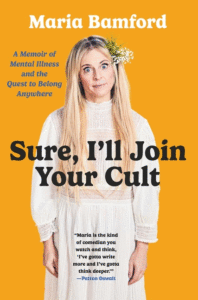
4. Sure, I’ll Join You Cult: A Memoir of Mental Illness and the Quest to Belong Anywhere by Maria Bamford
(Gallery Books)
6 Rave • 2 Positive
“Some of her misadventures—among them, being committed to a psych ward and accidentally killing a beloved pug — feel like anything but laughing matters. But it’s a testament to Bamford that she’s able to fill these pages with stories that are relatable and consistently hilarious, even when they’re harrowing … This material, and the quirks of its presentation, make the memoir feel like a 270-some-page portal directly into Bamford’s mind. That notion would probably be terrifying to Bamford, who worries frequently on the page that she may be coming across as a massive narcissist. But there’s an authenticity to her words that elevates them into something beyond the category of comedy memoir … Bamford has created a work destined to shine much-needed light on mental illness. Illuminating those serious moments with humor is her true triumph.”
–Zach Ruskin (The Washington Post)
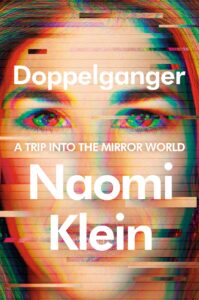
5. Doppelganger: A Trip Into the Mirror World by Naomi Klein
(Farrar, Straus and Giroux)
5 Rave • 3 Positive • 1 Mixed
Listen to an interview with Naomi Klein here
“This story of mistaken identity would on its own be gripping and revealing enough, both as a psychological study and for its explorations of the double in art and history, the disorienting effects of social media, and the queasy feeling of looking into a distorted mirror. But the larger subject of Doppelganger turns out to be a far more complex and consequential confusion: Its guiding question is how so many people have in recent years broken with conventional left-right political affiliations and a shared understanding of reality.”
–Laura Marsh (The New Republic)

